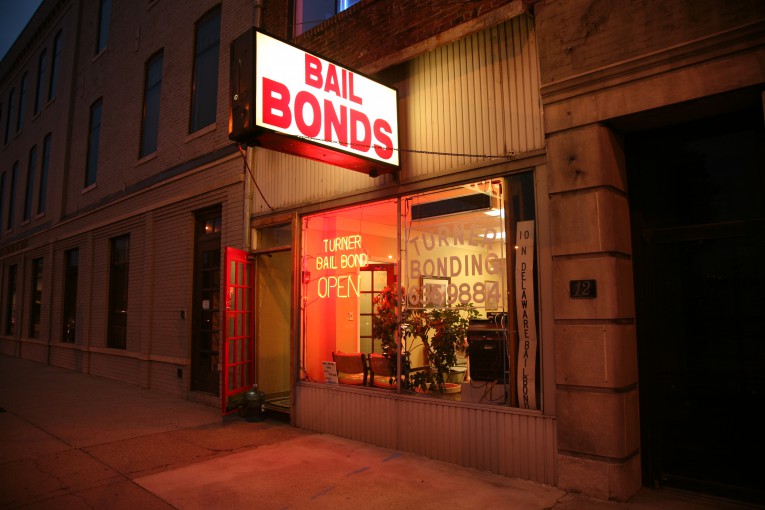

This has definitely been an odd year from start to finish. The Vanguard, as a non-profit, has experienced a lot of good growth this year in terms of reach, readership, and budget. However, along with that has come a pressure to produce, to be able to raise the money needed to accomplish our goals – and that is not always straightforward.
There are two messages that I wish to send here. First, if you support what the Vanguard is – an independent voice for local news and local engagement – we need you to help us be able to deliver that today and into the future.
The second thing is that we have what should be another amazing event on an important topic. What is now clear that wasn’t clear when we conceived of the idea of having an event on bail reform is that we will be fighting what is mostly a rearguard battle on civil rights and social justice. But bail reform is one area where the fight does not have to be rearguard.
Why bail reform? For one thing, it is a basic issue of fairness. Under a money bail system, there is a basic level of unfairness that everyone should be able to understand and agree to. People with money can get out of jail, be released pretrial, and those without money cannot.
Think about that. Pretrial release is based on ability to put down money to get a bail bond. It is not based on danger to the community. It is not based on whether you are a risk to flee or not make your hearings. It is based on the ability to pay.
A huge percentage of people clogging our county jails have not been convicted of a crime. They are there because they have been accused of a crime – but in this country we have a key principle: innocent until proven guilty. And yet, for many, they are essentially presumed guilty until proven innocent. That is a perversion of our principles.
And there are consequences. This week the AP had an article that found that around 40 percent of those who were exonerated in 2015 were convicted – not in a trial, but in a plea agreement. The bail system, which holds people in custody, makes it more likely that an innocent person will take a plea agreement in hopes of getting released from jail sooner.
But there is more. Studies have found that people who are in custody are not only more likely to take a plea (even if they are innocent), they are more likely to lose their jobs, lose their homes, to obtain a worse situation financially. They are less able to aid in their own defense and more likely to be found guilty in trial (other factors held constant) and more likely to get a longer sentence.
The fact is that we do not need bail at all – we can create a system that protects the innocent and the community at the same time.
For many who are serving time pretrial, they are not accused of crimes that will lead to jail or prison time, even if convicted. For many, they can simply be released on their own recognizance, to go about their business and ultimately come to a resolution on their criminal charges. They don’t need bail and they don’t need to be held in custody.
There are some that need supervision, just like the supervision they would get if they are given probation. They can do supervised OR (own recognizance) and check in with probation to make sure they are complying with their terms and conditions for release.
We have the ability to put people on house arrest or ankle monitor them. This is for people with more serious charges, but we can still leave them outside of custody, where they can work and pay their bills.
Finally, there are people who truly represent a danger to the community. For those, releasing them on bail is not necessarily an assurance they will not pose a danger to the community. In our view, those individuals can remain in custody – but it should be based on actual risk, not ability to pay.
Likewise, those who show they cannot make their court appearances or handle their responsibilities, we can simply rescind their OR status and put them in custody. But again, that should be based on actual conduct rather than ability to pay.
Tonight at 5 pm, we will have San Francisco Public Defender Jeff Adachi. He is an amazing speaker, for whom I have tremendous respect. He alone is worth the price of admission.
However, we will also have Phil Telfeyan, whose group, Equal Justice Under the Law, is a plaintiff in a suit in a federal trial that seeks to end money bail in San Francisco. We will also have Mica Doctoroff from the ACLU and Jessica Bartholow from Western Center on Law & Poverty.
This is a fundraiser, tonight at 5 pm, but we also do not want cost to be a reason that you do not come. So the main cost is $50, but we have discounted tickets at $20 for those of modest means and for students.
And for that you get a full dinner and drinks.
So come join us at the Davis Senior Center. You can purchase your tickets online: http://vanguardbailreform.eventbrite.com or you can purchase your tickets at the door. You won’t be turned away.
Davis Senior Center – 646 A Street, Davis, CA 95616 – enter on the 7th Street side.
Hope to see you tonight – this is an critical event for our community and a critical fundraiser for the Vanguard.
—David M. Greenwald reporting
